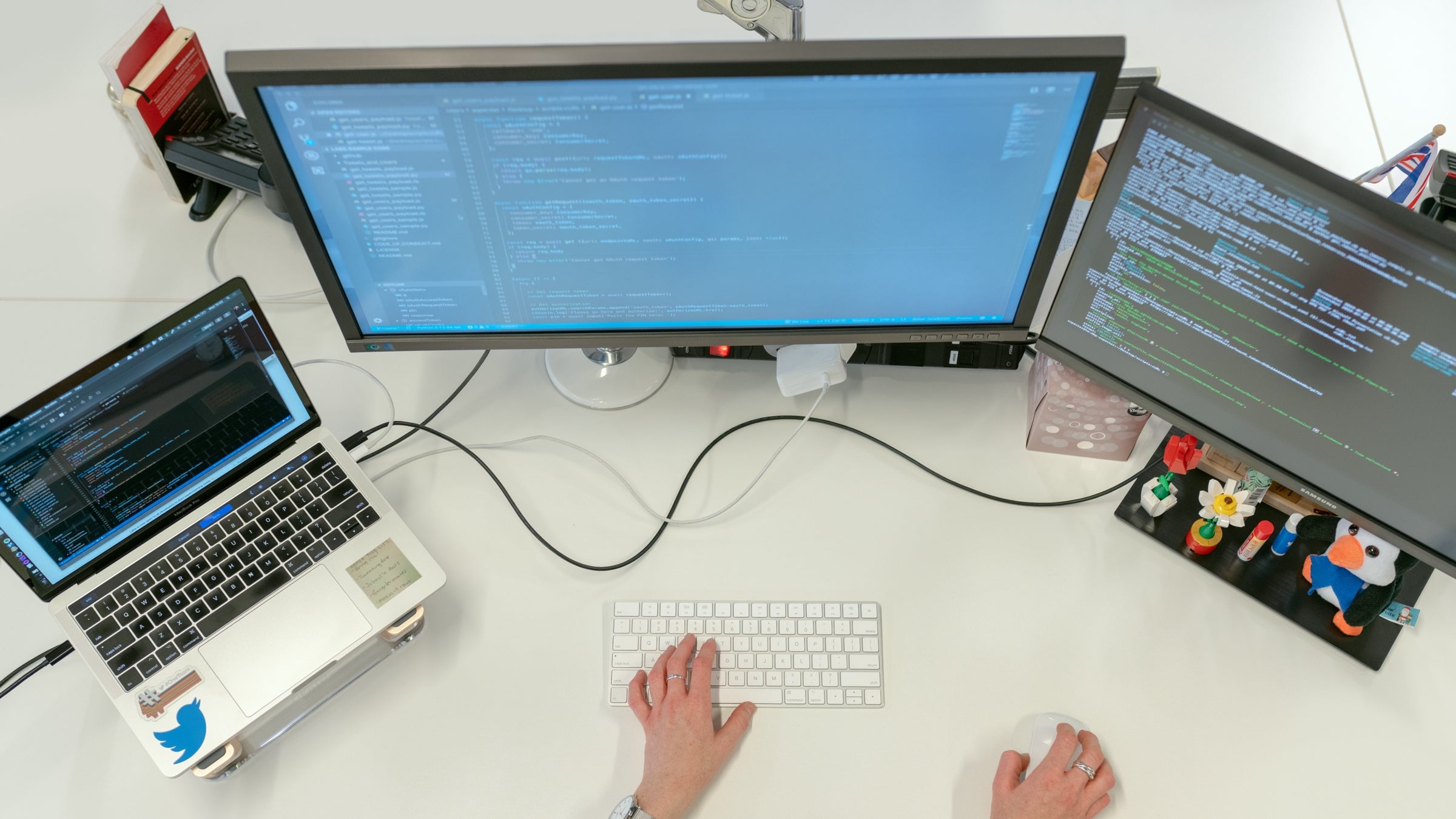Committed Developers vs. In-House Teams: Which Is Right for You?
The choice in between utilizing devoted programmers and keeping an internal group is a significant one that can affect the trajectory of your projects and total business technique. Devoted developers offer a level of versatility and specific expertise that can be advantageous for specific, short-term initiatives. Alternatively, internal groups add to a natural company society and a nuanced understanding of long-lasting goals. By checking out crucial factors such as budget plan, project extent, and desired control, you can much better figure out which technique aligns with your organizational needs. Nonetheless, the effects of this option expand beyond prompt end results-- take into consideration the wider influence on your service landscape.
Understanding Devoted Designers
The expanding need for specialized abilities in the technology industry has brought about the introduction of committed developers as a sensible remedy for numerous companies. These specialists are typically gotten on a job basis, permitting business to utilize certain knowledge without the long-term dedication related to full-time hires. Devoted designers are frequently embedded within a client's group, offering versatility and scalability to meet task needs.
This model enables companies to access a worldwide talent swimming pool, which is especially advantageous in a rapidly advancing technical landscape. Dedicated developers can be sourced from numerous geographical areas, making certain that firms can find the best capability at competitive prices. They commonly bring a riches of experience and knowledge, having worked on diverse jobs across different industries.
In addition, devoted programmers can concentrate solely on the jobs available, boosting productivity and effectiveness. They are outfitted to incorporate flawlessly into existing process, collaborating closely with in-house teams to achieve project goals. This approach not just lowers the burden of employment and training however also allows organizations to stay agile, adjusting rapidly to transforming market needs and technical advancements.
Benefits of In-House Teams

Furthermore, internal groups often tend to have a much deeper understanding of the company's goal, values, and goals. This alignment can enhance worker involvement and inspiration, as group participants feel much more connected to their job and the organization's success. Furthermore, having a specialized in-house team permits much better positioning of goals and techniques, as these members are consistently focused on the business's top priorities.
Internal groups likewise facilitate quicker decision-making processes, as they can respond much more quickly to adjustments and difficulties. The established relationships and familiarity with company procedures allow for streamlined workflows and reduced miscommunication. Ultimately, the combination of a natural culture, positioning with business goals, and efficient interaction makes internal groups an important possession for lots of companies, particularly those seeking to grow long-term development and innovation.
Expense Factors To Consider
When assessing price factors to consider, both specialized programmers and internal teams existing unique economic ramifications for companies. Involving devoted developers commonly involves a pay-per-project or hourly rate model, which can be cost-efficient for businesses with changing job needs. This method permits versatility in scaling sources up or down, guaranteeing that business only pay for the solutions they need.
On the other hand, in-house groups entail fixed costs, consisting of wages, benefits, and overhead costs such as workplace space and tools. While this model offers better control and immediate schedule of resources, it may lead to higher long-lasting expenses, particularly if the workload does not justify a full-time personnel.
Furthermore, business ought to consider the surprise expenses linked with employment and training of internal workers, which can check out this site further stress spending plans. Sometimes, the moment and sources spent on handling an internal team can interfere with the organization's core service objectives.

Task Monitoring and Adaptability
Job monitoring and versatility are vital elements that affect the option between devoted developers and in-house groups. Dedicated groups typically have established processes for handling jobs efficiently, leveraging details techniques like Agile or Scrum, which promote iterative progress and adaptability.

Eventually, the choice between internal groups and specialized programmers depends upon the preferred degree of adaptability and the details task monitoring requirements. Companies should review their functional characteristics, job complexity, and source schedule to figure out which option aligns ideal with their tactical goals.
Making the Right Selection
Selecting the best growth strategy-- devoted developers or in-house teams-- requires a careful assessment of various factors that line up with a company's strategic goals. nearshore software development. Think about the nature of the job. If it requires specialized skills or a quick scale-up, committed programmers might be preferable. Conversely, internal groups can provide far better connection and combination with existing employees.
Following, examine your spending plan. Committed programmers usually offer an economical remedy for temporary jobs, while internal groups might look at this website incur greater lasting expenses as a result of salaries, advantages, and expenses costs. Evaluate the level of control and partnership preferred; internal groups normally foster more powerful interaction and positioning with business society.
If immediate results are required, specialized programmers can be onboarded quickly, whereas building an internal group takes time for recruitment and training. If constant advancement is crucial, investing in an in-house team may generate much better returns over time.
Conclusion
In final thought, the decision in between committed designers and internal teams rests on project needs and business goals. Devoted designers give versatility and customized expertise, making them suitable for short-term campaigns. Conversely, in-house teams grow a website for ecommerce business natural society and deeper alignment with long-term goals. Cautious evaluation of spending plan restraints, job timelines, and desired control levels is necessary for figuring out the most ideal technique, making sure placement with critical priorities and operational effectiveness.
The choice between using dedicated developers and preserving an internal group is a substantial one that can impact the trajectory of your tasks and general service technique.Task monitoring and flexibility are essential variables that affect the selection in between in-house groups and devoted programmers. software engineering staffing.In comparison, internal groups may stand out in maintaining a regular job management structure due to their familiarity with the company's society and long-lasting objectives. Dedicated programmers often offer an economical remedy for short-term jobs, while internal teams might incur higher lasting expenditures due to salaries, benefits, and overhead costs.In conclusion, the decision in between internal groups and devoted programmers hinges on job requirements and organizational objectives
Comments on “Why Choosing the Right Software Development Partner Can Transform Your Project”